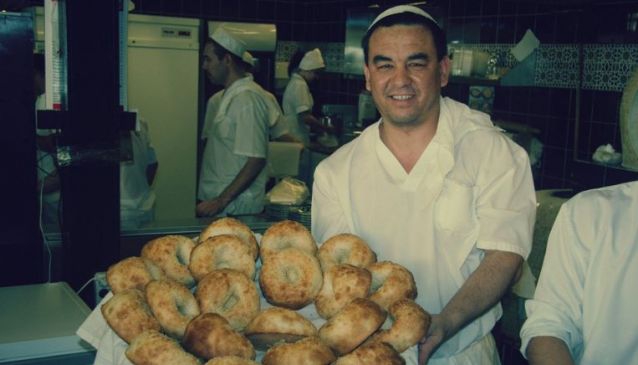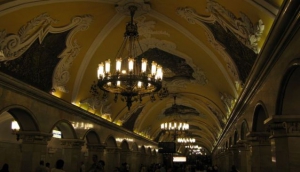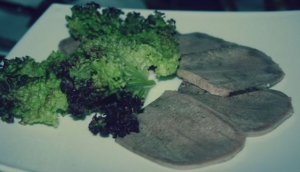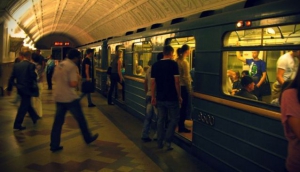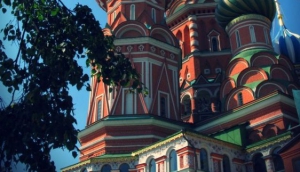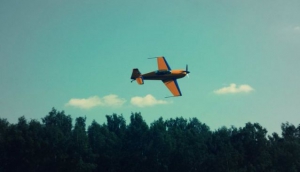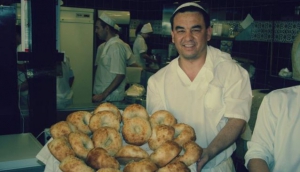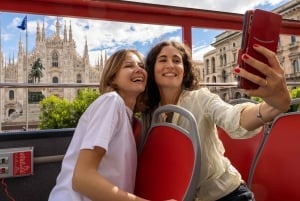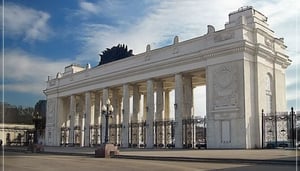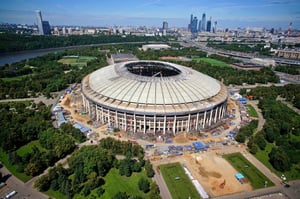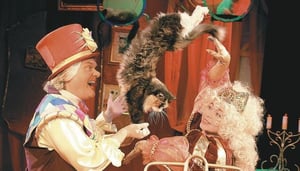A Moment in Moscow - Part II
Book Top Experiences and Tours in Moscow:
If youʻre booking your trip to Moscow last minute, we have you covered. Below are some of the top tours and experiences! View All ExperiencesIn the unlikely event that you haven’t read A Moment in Moscow – Part I, click here. It’ll help explain the existence of A Moment in Moscow – Part II. The concept is simple: 72 Muscovite hours compressed into 10 words, with the added complication that each of these words begins with the letter M. The first five described as a monumental, memorable, mystifying, murky and manic place; scroll down to complete the set...

When you’re the wrong way up in a plane that’s tearing through the air at 360 kmh. Indeed, everything’s a bit of a muddle in a situation like that; your thoughts, your hair, your freshly-provisioned stomach. Had we continued at this rate, we could have made it to St. Petersburg in a little under two hours, though we would, of course, have spent the rest of our lives walking bow-legged and speaking in the kind of high-pitched squeaks that only men who have had a sincere and protracted dependence on a lower-body harness can produce.
There were times during the flight when Mikhail, the pilot, relented in his quest to convey my body to the outside of the cockpit via osmosis, allowing my eyeballs to return to their sockets and soak up the vast reach of Russia’s rural landscape. And my word is it vast. If you were to walk around the perimeter of the entire country, assuming the route was direct and featureless and you tramped ceaselessly for 12 hours a day, you’d be at it for at least three years. From the confines of my bedevilled box I surveyed a flat abundance of green velvet fields, pockmarked with commodious settlements and blotted all over with forests that looked like the patches of spongy mould that grows on forgotten loaves of bread.

As you might expect from the capital city of a country that has bestowed upon the world the prophetic ingenuity of Stravinsky, the daring wit of Shostakovich, the dexterous fingers of Rachmaninoff and the titanic brilliance of Tchaikovsky, not to mention the theme music for The Apprentice. Ballet is the city’s primary musical indulgence and export, and is supported rapaciously by locals who jump almost literally at any opportunity to show it, as we discovered to our lasting amusement at a performance of Swan Lake.
For those who aren’t enamoured by tutus and tights, however, Moscow’s acclaimed State Circus provides a reliable programme of entertainment that doesn’t appear to have changed much in the last 100 years. All the typecasts are played diligently and with Hollywood smiles; the pot-bellied ringmaster, the featherweight trapeze artist, the woefully unconvincing magician, the gang of jugglers who also happen to be great at backflips, and, of course, the muscle man who can do a one-armed handstand on a pole and make all the male audience members feel inadequate. In short, it’s everything you could want from a circus.

Constantly. It is a city that swarms with activity and motion, where daylight sustains an assiduous centre for industry and trade, and darkness provides a cloak against which the city’s clubs, restaurants and bars have developed a penchant for opulence and excess, lighting Moscow streets with an electric kaleidoscope like a charged circuit board in the cradle of a microscope. Indeed, Muscovite nightlife is all about being flash and splashing cash, which comes as little surprise from the city that boasts the most billionaires of any metropolis in the world.
It wasn’t always this way, however, at least not according to a man named Mikhail Matusovsky, who wrote in 1955 that ‘Whispers are not heard in the flowerbed, everything has died down till dawn, if you only knew how dear to me, are these tranquil Moscow nights.’ Although the passage might have had more zip about it if ‘nights’ was replaced with ‘yawns’, the sentiment remains clear, and we can only imagine what Mikhail would have made of things if he were placed on the dance floor of a thumping Muscovite club today.

Especially if you like sushi, the latest culinary craze to have gripped Muscovite gullets. Like most First World cities in the modern age, Moscow has a truly international palette that is reflected by a vast assortment of restaurants offering every cuisine imaginable. In just three days our tonsils bathed in the dripping meat of a Chicago steakhouse, the unique delicacies of an Uzbek banquet, the luscious fluids of Italian seafood and Russia’s own distinct (and often stodgy) fodder, all washed away with liberal quaffs of vodka, naturally.
That is not to say Moscow’s cuisine scene is without the usual peculiar quirks, however. At various junctures our stomachs made space for jellied meats, raw scallops, cold beetroot soup, rabbit patties that may well have been cat food, and flaccid beef tongues which came complete with taste buds. Perhaps the most unbearable ingestion, however, was horseradish vodka; if you can drink a shot of that stuff without pulling a face like a man who’s just been dropped from a great height onto a bicycle without a seat, I would dearly like to meet you.

Preconceptions about Moscow – and, by extension, Russia – are particularly entrenched. Many synonymise the two with cold, both in temperature and temperament, and for a large part of the year they may well be right. But I had the fortune of visiting in August, and had I stayed just a couple more days I’d be sitting here with a suntan.
Other presumptions are more accurate; police are remarkably prevalent around Moscow, many locals do convey themselves in a Lada, and Russians do keep a bottle of Vodka in their freezer which they consume with haste. But to imagine a city that remains within a rigid Soviet mould, as many do, is as wide of the mark as believing London is full of horse-drawn carriages taking aristocrats to afternoon tea.
Moscow is a vivacious metropolis that deserves to be placed alongside the world’s most celebrated conurbations, responsible for some of the most enthralling pages in history, for many of the greatest prosperities of the present, and, as the capital city of one of the BRICs, is likely to have a profound global influence in the future.
In an ironic sense, the drive towards supremacy that possessed Stalin so vehemently has, in some way, been realised, albeit by a regime vastly different to the one he created. Yet while Moscow flourishes much of Russia wallows, and the corruption that is so widely reported by Western media does very much exist, casting doubts upon the foundations beneath the city’s cocksure façade.
None of which occurred to me while I was there, of course. Quite the opposite – I was hopelessly enamoured by Moscow’s charm, wooed by its grandeur and engrossed by its heritage. Here was a city that dared to dream big, that strove to excel in every possible way; width, height, wealth and sights. There are probably still claw marks on the doors that I had to be dragged through to get on the plane; I didn’t want to leave.
If you take just one sentiment from this essay, let it be this: whether now or in years to come, whether with the exuberance of youth or the experience of old age, at some point in your life you must go to Moscow.



